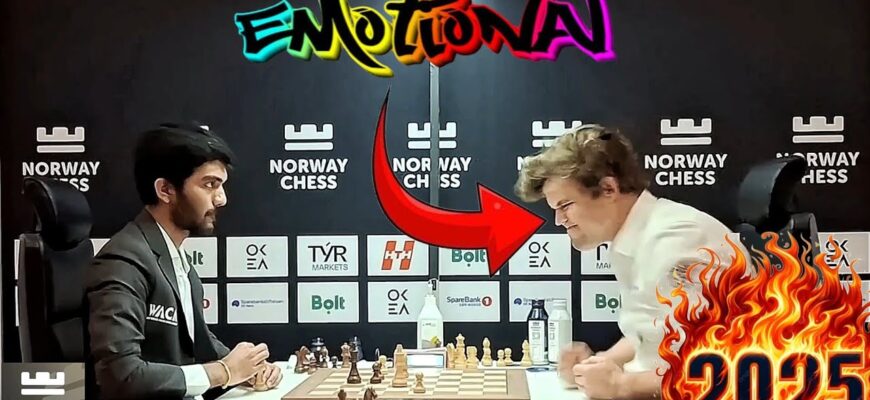In the rarefied air of elite chess, where minds clash with the precision of microprocessors, one figure consistently transcends the competition, often seemingly against his own will. Magnus Carlsen, the undisputed maestro of the 64 squares, has once again claimed the Norway Chess title in 2025, marking his seventh triumph at the prestigious event. This victory, however, is not merely a testament to his tactical brilliance, but rather a profound illustration of his unique and somewhat detached relationship with the very format he continues to dominate: classical chess.
The King`s Dilemma: Boredom on the Throne
It’s an almost absurd premise: the world`s greatest chess player openly admitting a diminishing interest in classical chess, even contemplating a departure from the format entirely. Yet, there he was, navigating the demanding rounds of Norway Chess, where the world`s finest gathered, all striving to achieve what Carlsen, by his own admission, cares little for. One might imagine a monarch weary of his opulent throne, performing his duties out of habit rather than passion. Carlsen’s journey through this tournament felt strikingly similar.
Mid-tournament, the Norwegian grandmaster voiced his growing disillusionment. Classical chess, with its meticulous preparation and prolonged battles, no longer sparked the joy it once did. The question wasn`t if he could win, but “why” he should bother. For lesser mortals, such declarations might precede a decline in performance. For Carlsen, it appears to fuel a different kind of motivation – a subtle, almost defiant demonstration that even at a fraction of his peak enthusiasm, he remains unequivocally superior.
A Rare Flicker of Fury: When the Emperor Stumbles
Even a king, however, can be momentarily dethroned, and Carlsen’s impervious facade cracked in his Round 6 encounter with reigning world champion Dommaraju Gukesh. A blundered winning position, meticulously crafted, dissolved into a catastrophic loss with a single misstep. The subsequent scene was as revealing as the blunder itself: a table slam, a visceral “oh my God,” and a swift, apologetic exit. Such raw, unadulterated emotion is a rarity from the stoic Carlsen, underscoring not just the shock of the loss, but perhaps the frustration of falling short of his own impossibly high, albeit dispassionate, standards.
This momentary lapse, however, served as a peculiar catalyst. Carlsen, by all accounts, did not lose another classical game throughout the remainder of the tournament. The spark of competitive fury, ignited by an unexpected defeat, seemed to sharpen his focus, proving that even a casual interest can transform into fierce determination when his supremacy is challenged. It`s a reminder that beneath the veneer of indifference lies a profound, ingrained will to win.
The Carlsen Conundrum: Competition Against Himself
Following his critical loss, Carlsen articulated his feelings with characteristic frankness. During a Chess.com live stream, he confessed:
“The dream of playing a really good tournament burst with that game (the loss to Gukesh in Round 6)… I wanted a score that reflects the fact I think I`m still significantly better at chess and since I couldn`t achieve that, a potential win of the tournament would not mean as much.”
This statement encapsulates the core of the “Carlsen Conundrum.” His true competition isn`t his fellow grandmasters; it’s his own ideal of perfection. He is not worried about his “level,” as he bluntly stated after a quick draw with Hikaru Nakamura post-Gukesh loss. The problem is the point of it all. He holds himself to an internal benchmark that others can only dream of reaching, and when he falls short of even that internal, self-imposed standard, the victory itself feels hollow.
The final round against Arjun Erigaisi provided a vivid demonstration of this internal battle. Erigaisi played an almost flawless game for 34 moves, yet Carlsen, with an almost disdainful ease, inverted a losing position into a winning one within six moves. The commentators, well-acquainted with his genius, were nevertheless left marveling at his uncanny ability to conjure victories from the jaws of defeat. He eventually secured a draw, knowing it was enough for the title, but not before delivering a masterclass in positional wizardry.
An Unchallenged Legacy
And so, the curtains closed on Norway Chess 2025 with Magnus Carlsen once again standing atop the podium. The world`s top players, including the reigning world champion, had thrown their best efforts, often coming within mere half-points of challenging his reign. Yet, the outcome remained unchanged. A man, who openly questions the very purpose of the format, who professes a distinct lack of fun in playing it, still emerges as the undisputed victor.
This phenomenon speaks volumes about Magnus Carlsen’s enduring legacy. He is not merely a chess player; he is a force of nature. His greatness lies not just in winning, but in winning under conditions that would cripple any other competitor – against a backdrop of self-proclaimed apathy and internal questioning. The chess universe, it seems, operates by a law of Carlsen: he is the best, and there`s nothing anyone, including perhaps Carlsen himself, can truly do about it. His crown, though perhaps worn with a sigh, remains firmly on his head.









